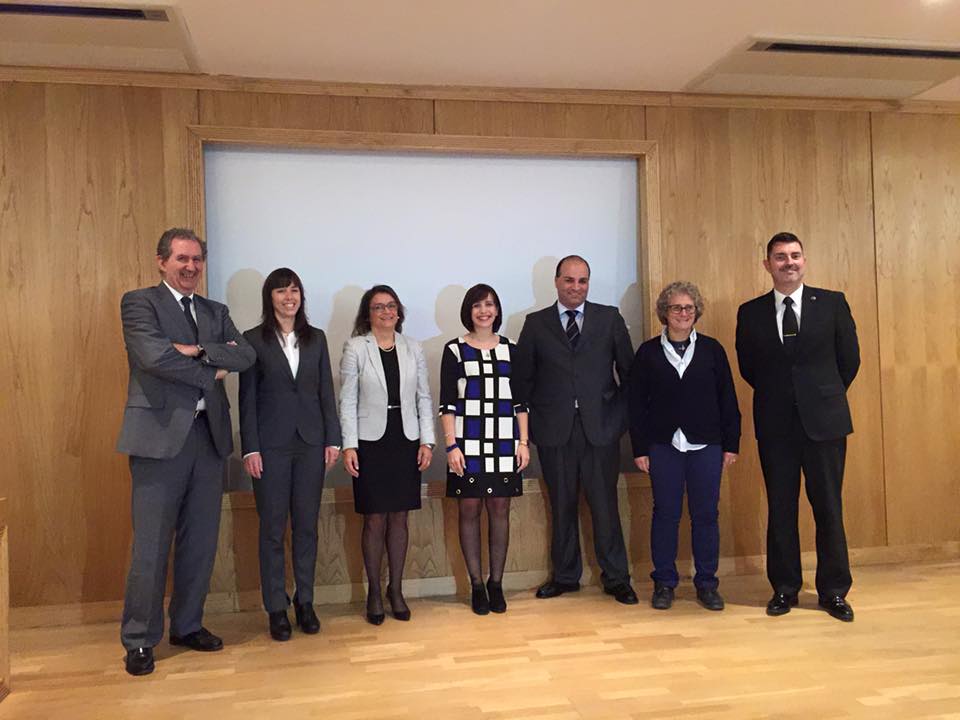12-05-2016
Ana Sofia Silva, MIT Portugal alumna, is distinguished with the Best Thesis Award for her PhD thesis, entitled “Multifunctional nano-in-micro formulations for lung cancer theragnosis”, during the 16th European Meeting of Supercritical Fluids in Essen, Germany, on May 11th. This award is attributed every two years bythe International Society for the Advancement of Supercritical Fluids to distinguish the best works developed by recent graduates.
Ana Sofia Silva’s PhD was carried out at FCT-NOVA at the Polymer Synthesis and Processing group, from LAQV-REQUIMTE, under the supervision of Ana Aguiar-Ricardo, Full Professor at the Chemistry Department of FCT-NOVA. The research work was done in collaboration with the Biomaterials and Tissue Engineering group from Universidade da Beira Interior (UBI), under the supervision of Ilídio Correia, Assistant Professor at UBI.
Ana Sofia Silva’s thesis proposes a new therapeutic approach to lung cancer, the most common and leading cause of cancer death in both men and women worldwide. Despite the clinical and technological advances, the majority of patients are lately diagnosed with either locally advanced or metastatic disease. In fact, 86% of the patients with lung cancer die within two years, while only 14% survive for five years.
Lung cancer therapies struggle with many difficulties in its administration to the patient. Therapies must be aggressive enough to combat the disease, yet avoid side effects that can have a strong negative impact on the patient. Localized drug delivery shows a great promise in the treatment of such disease. Therefore, particle engineering has been combined with pulmonary administration to generate new potentially effective delivery systems. Particles for pulmonary administration should present aerodynamic diameters between 0.5 and 5 µm. Smaller particles may fail to deposit and are exhaled, whereas bigger ones may accumulate in the mouth and throat.
Ana Sofia Silva explains that the results presented in her thesis “reveal the extraordinary advantages of combining nanotechnology, molecular biology, polymer science, chemical engineering and supercritical fluid technologies, to develop robust and reliable pulmonary delivery systems for the treatment of non-small cell lung cancer”.
For this purpose, “nanoparticulated systems with therapeutic and/or diagnosis capabilities were embedded into respirable microparticles to be delivered to the lungs. In order to minimize costs, environmental impact, and eventual toxicity, the particles for pulmonary inhalation engineered during my PhD, were produced using sustainable methodologies like supercritical assisted spray drying (SASD), a process based on supercritical carbon dioxide (scCO2) technology, an emerging technology exploited at Professor Ana Aguiar Ricardo’s lab”, says Ana Sofia Silva.
After preliminary works for the optimization of such micronized powders, Ana Sofia Silva spent 5 months at MIT, at the Koch Institute for Integrative Cancer Research in Paula Hammond’s lab developing a new approach to lung cancer therapy that combines the newly pulmonary administration mechanism with gene therapy. She developed layer-by-layer nanocarriers comprising a nanolayer of small interference RNA, which is able to knockdown mutated oncogenes by interfering directly with them. The novel powder developed by Ana Sofia Silva was tested in healthy mice in order to assess the biodistribution of the particles. The successful outcomes are truly exciting and provide a potential strategy opening new insights to effective gene therapy in lung adenocarcinoma situations.
